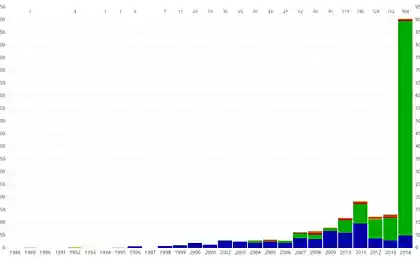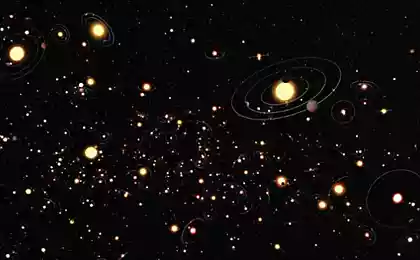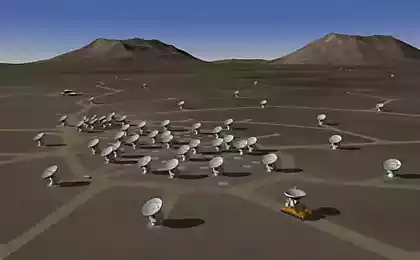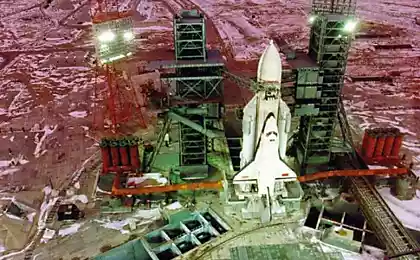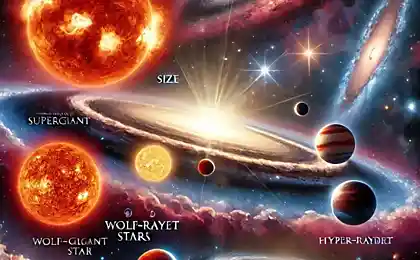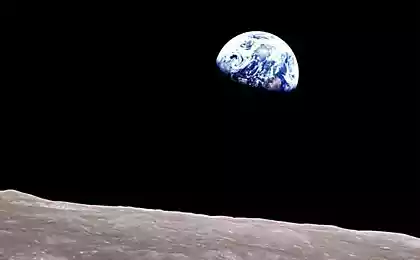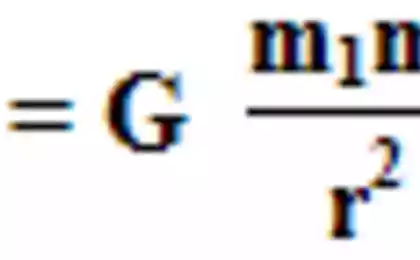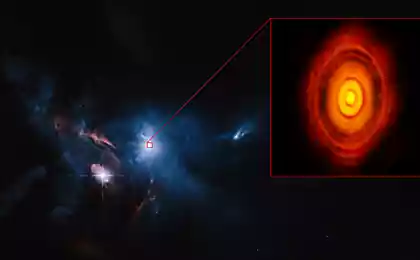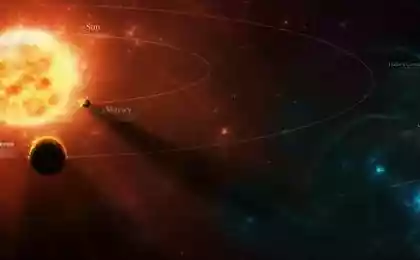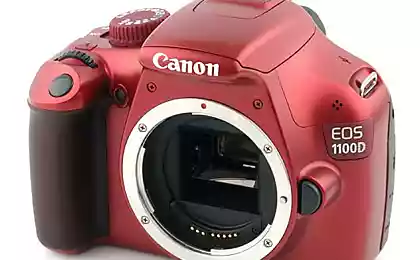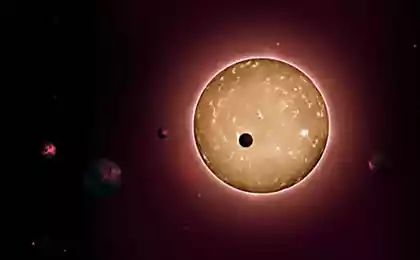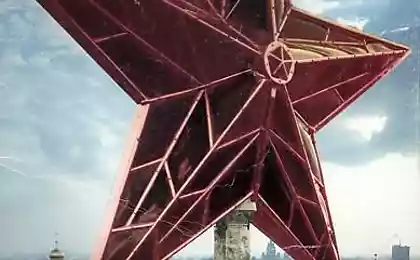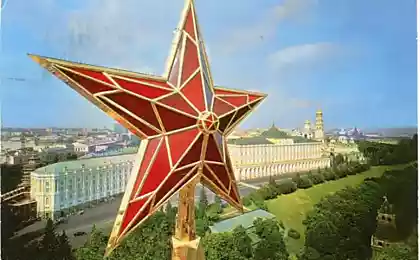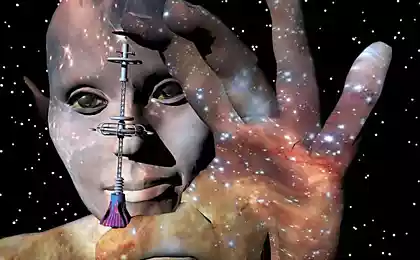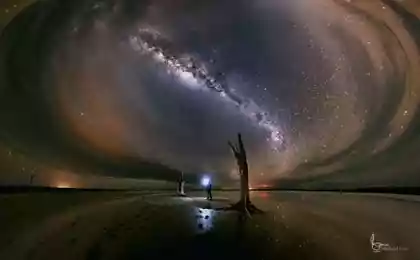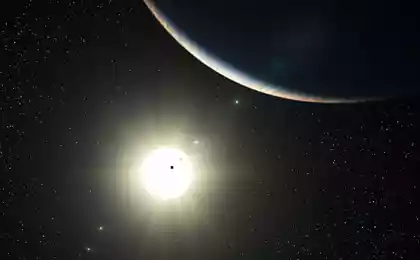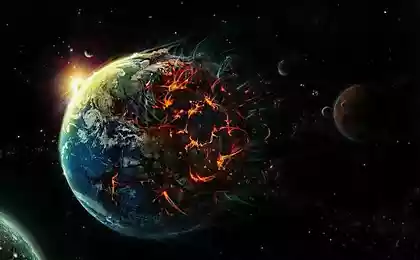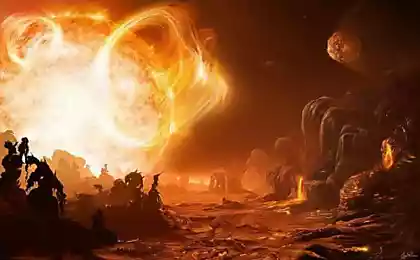521
The Russians will see a parade of planets and stars
In January, the people of Russia will witness several remarkable astronomical events, reported in the Moscow planetarium. In particular, the Earth will pass at a minimum distance from the Sun, and Venus will come together in the sky with Saturn, through telescopes to see the comet Catalina, and to the naked eye, a meteor shower Quadrantids. In late January, mercury, Venus, Saturn, Mars and Jupiter will form a parade of bright planets in the Solar system with accessions Moon.
As said the employee of the planetarium Lyudmila Koshman, "January 3 Earth is at perihelion to the Sun, that is closest to the Sun point of the orbit. The apparent diameter of the Sun is greatest. Change the size of the solar disk occurs gradually over six months, so the difference is imperceptible to the eye. Sometimes I think that this time should be warm on the Ground, that is, we should be summer. Summer is in the southern hemisphere. While the Northern hemisphere this time of winter, the days are short, and in our latitudes, the Sun manages to warm the Earth."
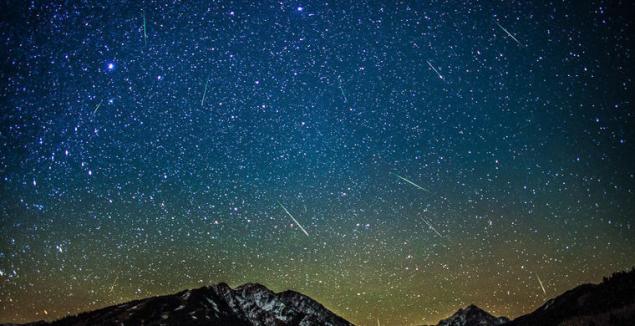
The January sky will decorate the comet Catalina, which is new year's eve will be near the bright star Arcturus in the constellation Bootes, and on January 17, will pass close to Earth distance. Comet Catalina is available for observation in binoculars and Amateur telescopes on clear, not overexposed the city lights and full Moon sky. The constellations are clearly visible Twins, Small Dog, Cancer, Leo, Big dipper, is at the Zenith.
In the January sky shed and a rain of stars — meteor showers Quadrantids reached the peak of its activity on 4 January. The number of observed meteors can be up to 200 per hour, but they have a weak luminosity and average speed. Quadrantids fly out of the constellation Bootes, which rises in January above the horizon in the Eastern sky. But the name of the meteor shower received from unused in modern astronomy the constellation of the Wall Quadrant. To watch the Quadrantids are best 23:00 GMT until dawn. 9 January 07:00 GMT will be a connection of Venus and Saturn. The distance between the heavenly bodies will be only 5 minutes of arc, that is, the planet will virtually merge into a single bright point as seen from Earth.
And at the end of the month — 31 January — mercury, Venus, Saturn, Mars and Jupiter will form a parade of bright planets in the Solar system with accessions Moon.
According to the head of the astronomical complex of the Moscow planetarium, Yaroslav-the-Turilova, "in the coming year there will be several important astronomical events." One of them — the passage of mercury over the solar disk, which will take place on may 9 and will be seen almost on the whole territory of Russia. Moving the reverse movement, mercury will pass across the solar disk from left to right, a little to the South of the city centre. The planetarium organizes mass surveillance of such a rare astronomical phenomenon.
"Given the fact that in may quite a lot of clear days, and usually on Victory Day, the skies over Moscow specially cleared of clouds, there are many chances to witness the event, which next time will only happen in November 2032," said Churilov, quoted by TASS. published
P. S. And remember, only by changing their consumption — together we change the world! ©
Join us in Facebook , Vkontakte, Odnoklassniki
Source: moya-planeta.ru/news/view/rossiyane_uvidyat_parad_planet_i_zvezdopad_17878/
As said the employee of the planetarium Lyudmila Koshman, "January 3 Earth is at perihelion to the Sun, that is closest to the Sun point of the orbit. The apparent diameter of the Sun is greatest. Change the size of the solar disk occurs gradually over six months, so the difference is imperceptible to the eye. Sometimes I think that this time should be warm on the Ground, that is, we should be summer. Summer is in the southern hemisphere. While the Northern hemisphere this time of winter, the days are short, and in our latitudes, the Sun manages to warm the Earth."

The January sky will decorate the comet Catalina, which is new year's eve will be near the bright star Arcturus in the constellation Bootes, and on January 17, will pass close to Earth distance. Comet Catalina is available for observation in binoculars and Amateur telescopes on clear, not overexposed the city lights and full Moon sky. The constellations are clearly visible Twins, Small Dog, Cancer, Leo, Big dipper, is at the Zenith.
In the January sky shed and a rain of stars — meteor showers Quadrantids reached the peak of its activity on 4 January. The number of observed meteors can be up to 200 per hour, but they have a weak luminosity and average speed. Quadrantids fly out of the constellation Bootes, which rises in January above the horizon in the Eastern sky. But the name of the meteor shower received from unused in modern astronomy the constellation of the Wall Quadrant. To watch the Quadrantids are best 23:00 GMT until dawn. 9 January 07:00 GMT will be a connection of Venus and Saturn. The distance between the heavenly bodies will be only 5 minutes of arc, that is, the planet will virtually merge into a single bright point as seen from Earth.
And at the end of the month — 31 January — mercury, Venus, Saturn, Mars and Jupiter will form a parade of bright planets in the Solar system with accessions Moon.
According to the head of the astronomical complex of the Moscow planetarium, Yaroslav-the-Turilova, "in the coming year there will be several important astronomical events." One of them — the passage of mercury over the solar disk, which will take place on may 9 and will be seen almost on the whole territory of Russia. Moving the reverse movement, mercury will pass across the solar disk from left to right, a little to the South of the city centre. The planetarium organizes mass surveillance of such a rare astronomical phenomenon.
"Given the fact that in may quite a lot of clear days, and usually on Victory Day, the skies over Moscow specially cleared of clouds, there are many chances to witness the event, which next time will only happen in November 2032," said Churilov, quoted by TASS. published
P. S. And remember, only by changing their consumption — together we change the world! ©
Join us in Facebook , Vkontakte, Odnoklassniki
Source: moya-planeta.ru/news/view/rossiyane_uvidyat_parad_planet_i_zvezdopad_17878/
